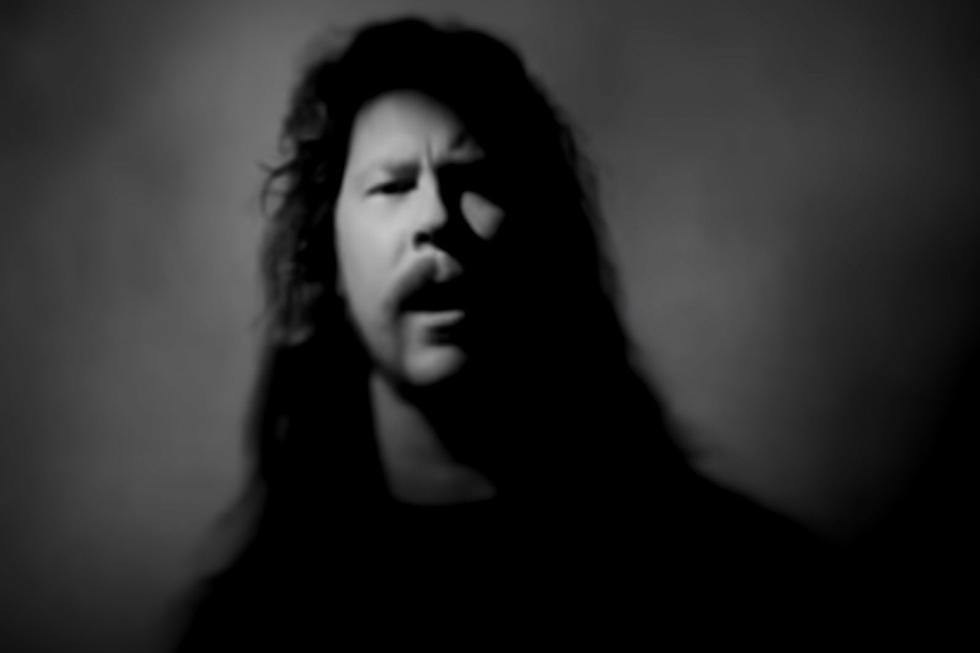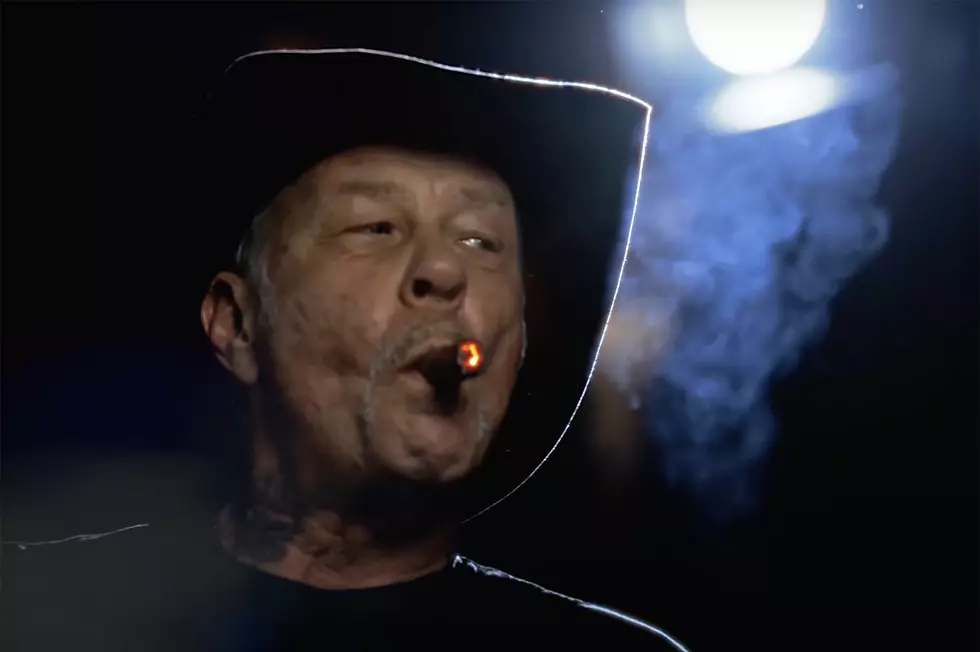
How James Hetfield Channeled Childhood Pain on ‘The Unforgiven’
Pain has led to a lot of gain for Metallica over the decades. And the adage is exponential for "The Unforgiven," a dark and deeply personal song that's spun off two sequels for a trilogy as intense as any of the battle scenes from The Lord of the Rings, The Hobbit or Star Wars.
The original incarnation of the song came out in 1991 on Metallica, aka The Black Album. It wasn't the band's first heavy ballad; it followed in the sonic footsteps of "Fade to Black," "Welcome Home (Sanitarium)" and "One" — though fans noted that "The Unforgiven" flipped the dynamic switch with its full-on choruses and gentler chorus. And there were instrumental touches, such as subtle keyboards, additional percussion instruments played by Lars Ulrich and an altered horn during the intro that subtly referenced the 1960 Western feature film The Unforgiven, from which James Hetfield took the title.
But the recording's most striking aspect was Hetfield's performance, which he said was inspired by hearing Chris Isaak's steamy and evocative hit "Wicked Game" two years earlier. "At this point, James wanted to sing," producer Bob Rock told MusicRadar. "He had done a lot of screaming, but now he wanted to go somewhere else. In the past he had always doubled his vocals. He didn't sing harmonies per se; he just sang the same thing on another track. .... I told James we should record his vocal, but instead of listening to himself on headphones, I wanted him to listen on speakers. The difference was amazing. He sang the song, and because he heard himself in a different way, there was a whole new dimension to his voice. It was big and deep and warm, and jumped out at you."
That sea change certainly caught fans' attention and raised a few eyebrows along with the overall streamlined nature of the Metallica album. "We wanted to write shorter stuff," Hetfield told me at the time. "Of course, we say that every album. This time it actually worked." However, he added, "That approach meant we needed to think more on our individual performances. I found myself more of a vocalist this time. I actually had to sing this stuff."
Listen to Metallica's 'The Unforgiven'
Then there was the pain part. Hetfield acknowledged that the lyrics for "The Unforgiven" were inspired by his childhood, including his parents' devoutly Christian beliefs (they insisted he leave during science classes in school), his anger over his father leaving the family when Hetfield was 13 and his mother's ineffectiveness for Hetfield and his sister. "'The Unforgiven' was basically about alienation and, kind of, regret in life," Hetfield explained to Maximum Guitar in 1998. "I lived my life for other people, trying to please everyone else except myself and at the end of the day blaming everyone else instead of yourself and not really taking responsibility for yourself."
Those feelings certainly connected with an audience. The second single from the Black Album, "The Unforgiven" hit No. 10 on the Billboard Mainstream Rock Songs chart and No. 35 on the Hot 100, second only to its predecessor, "Enter Sandman," at the time. It was certified gold as a single and has been a staple of Metallica's live shows ever since. "The Unforgiven" "franchise" continued with "The Unforgiven II" on 1997's Reload, which reached No. 2 on the Mainstream Rock chart. "The Unforgiven III," meanwhile, came out 18 years later on Death Magnetic but was not released as a single.
"A lot of times I go back, and I'll find new things in the old things I've written," Hetfield said in 1998. "Though it was about my life, ['The Unforgiven''s] sentiments are the kind of thing that stays with you. They're pretty basic and elemental. To revisit them from a different, older perspective is very interesting. It's like a story that keeps going."
It remains a popular song in the band's catalog. The 2021 Metallica Blacklist tribute album featured seven covers of "The Unforgiven" by artists as diverse as Cage the Elephant, Flatbush Zombies, Diet Cig, Ha*Ash, Jose Madero, Moses Sumney and the trio of Vishal Dadlani, Divine and Shor Police.
Metallica Albums Ranked
More From Ultimate Classic Rock









